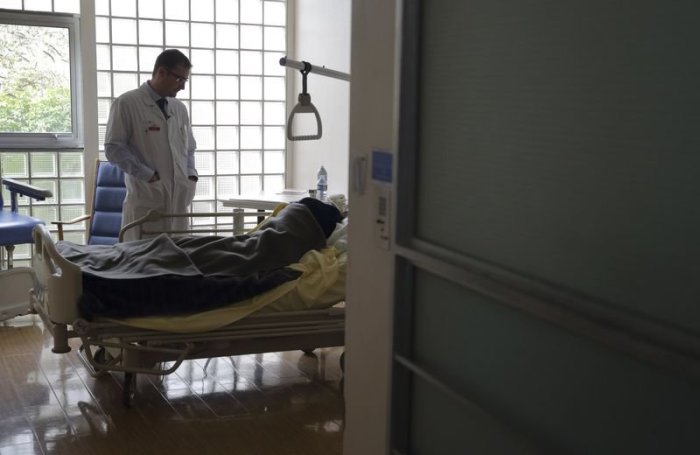44-year-old quadriplegic man becomes first to die by assisted suicide in Italy's history

Italy has formally approved and carried out its first-ever assisted suicide, which followed a lengthy legal fight so that a quadriplegic man could end his life.
Forty-four-year-old Federico Carboni, a truck driver known publicly by the pseudonym "Mario" and paralyzed in an accident on the road in 2010, died Thursday by lethal injection in the eastern Marche region of the southern European country.
He had previously described his life as "torture" and tried to live as best he could but was "both mentally and physically exhausted," according to The Telegraph.
Some of his last words, according to Associazione Luca Coscioni, the pro-euthanasia organization that represented him, were:
"I do not have a minimum of autonomy in everyday life, I am at the mercy of events, I depend on others for everything, I am like a boat adrift in the ocean. I am aware of my physical condition and future prospects so I am totally calm and calm about what I will do."
Carboni also said he was "proud" to have fought for the right to die by assisted suicide.
The Italian man had wanted to travel to neighboring Switzerland, where the practice has been legal for years but decided to take legal action for the right to end his life in his home nation in 2020.
His filing came after the Italian Constitutional Court legalized the practice in 2019 under certain circumstances. The high court held that the practice could be allowed for those in intense pain, with no prospect of recovering, and who had clearly said they wished to die.
Wesley J. Smith, an ardent critic of euthanasia and assisted suicide and a senior fellow at the Discovery Institute's Center on Human Exceptionalism, told The Christian Post in an email Monday "there are several notable issues involving assisted suicide seeping into Italy."
"First, this is because of a court ruling, not a law, although legalization is being debated in the Italian Parliament," Smith stated. "Second, the patient who killed himself was not terminally ill, but paralyzed — illustrating the fact that assisted suicide isn't about terminal illness."
Smith contends the legalization of assisted suicide stems from "a philosophy that sees death as a splendid response to suffering caused by serious disease, disability, mental illness and the morbidities of old age."
"This is why disability rights organizations are so adamantly opposed to legalization because they see themselves — correctly in my view — as the primary targets of the movement," he said. "And we see in places like Canada, people with disabilities choosing to be euthanized because they are denied the kind of services that would make them want to live."
"The court ruling reflects the contemporary view in the West that is fast becoming pro-some suicides, a policy that basically says that we will try and prevent suicides of the young and of veterans, but that the deaths of people with serious illnesses or disabilities we will facilitate," he continued.
"When we say that we will strive to save some from suicide and not others, we are making a fundamental claim that the latter categories of people's lives are not as valuable as those of suicidal people to whom we offer suicide prevention services. If that isn't a denial of equality, I don't know what is."
Carboni reportedly encountered setbacks from local authorities since the Italian Parliament had not yet approved the law. Earlier this year, he was cleared for the procedure, but the costs were not covered. Associazione Luca Coscioni raised the money through an online appeal effort.
In a statement, Filomena Gallo, a spokesperson for the Luca Coscioni Association, said that Carboni's efforts have won the right for others.
"Federico wanted to exercise his right to free choice in Italy," she said in a quote translated to English, "and he was aware that his resistance would be a right, a freedom, exercised for everyone."
The Roman Catholic Church, which formally opposes euthanasia and physician suicide and has influenced the nation's medical and health care ethics, has criticized Carboni's legal appeals.
Angelo Spina, the Archbishop of Ancona, told reporters that "death must be accepted but never provoked."
"The Catholic Church respects every person and stops in the face of the mystery of suffering and of illness," Spina said.
Spina said the role of the Church in cases like Carboni's is "to stay close, to care for in all possible ways, that is, to heal."
"Life is a gift and should never be touched," he said.





























